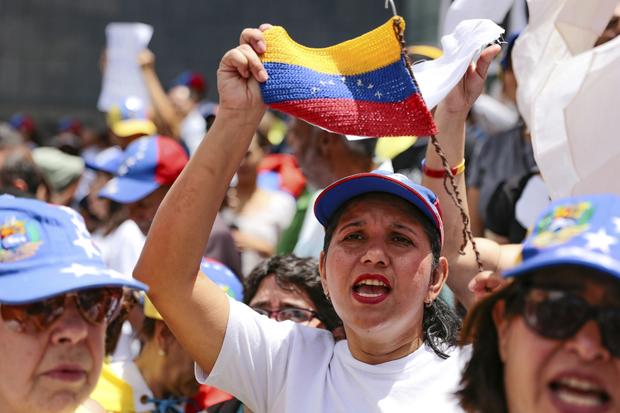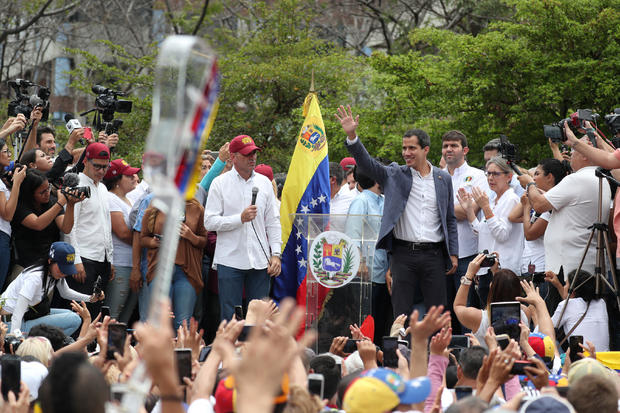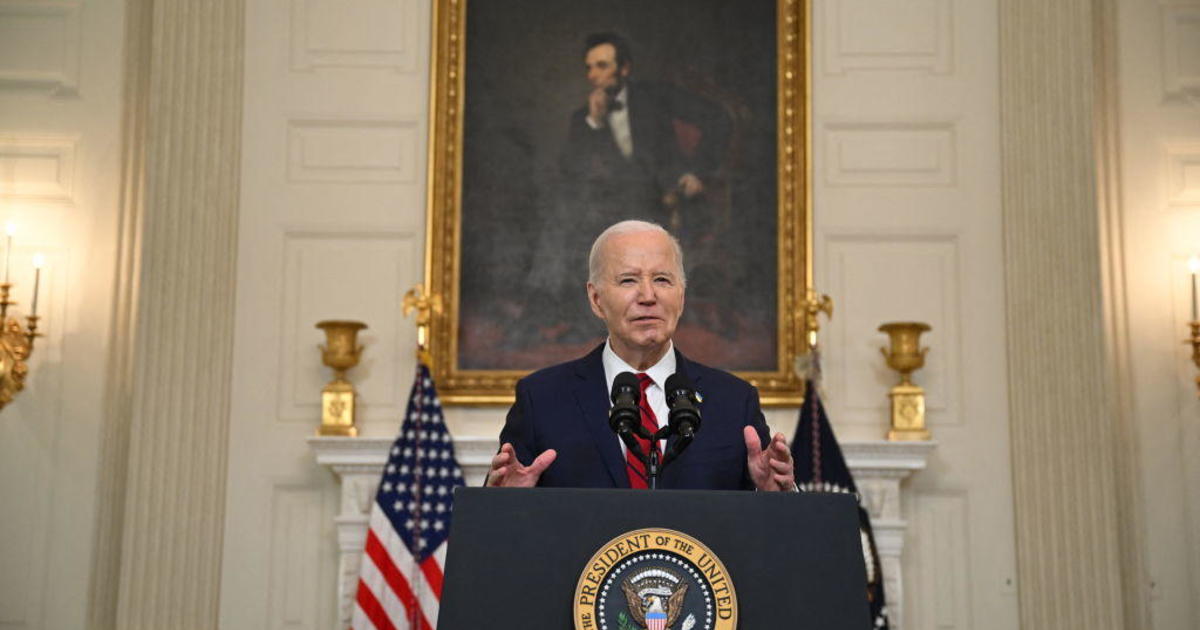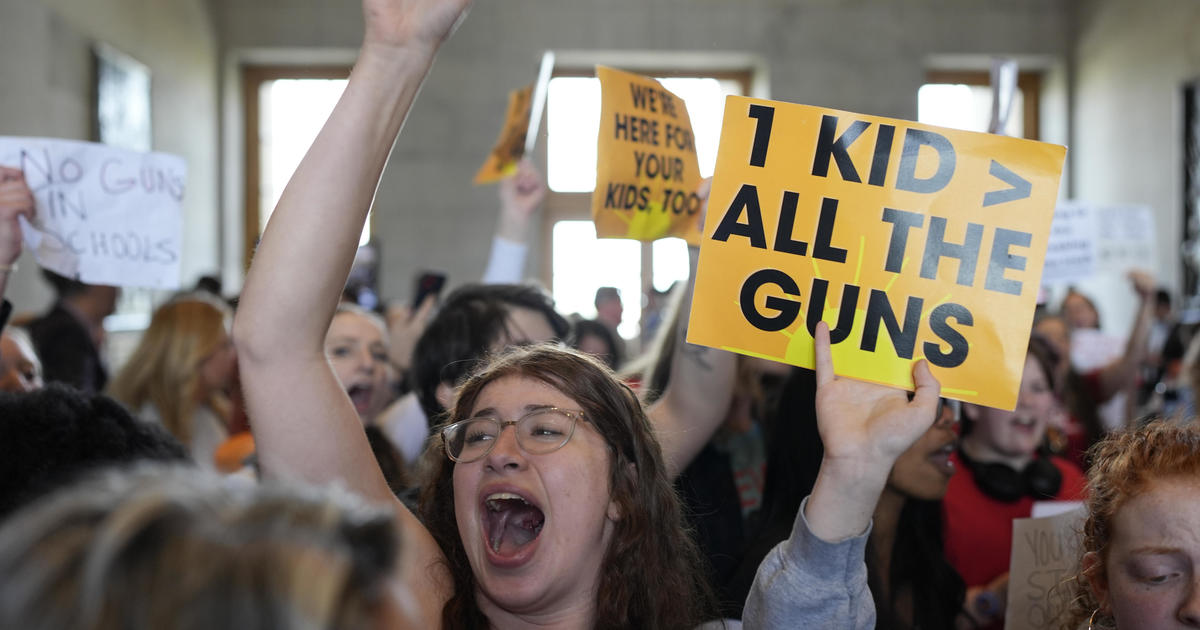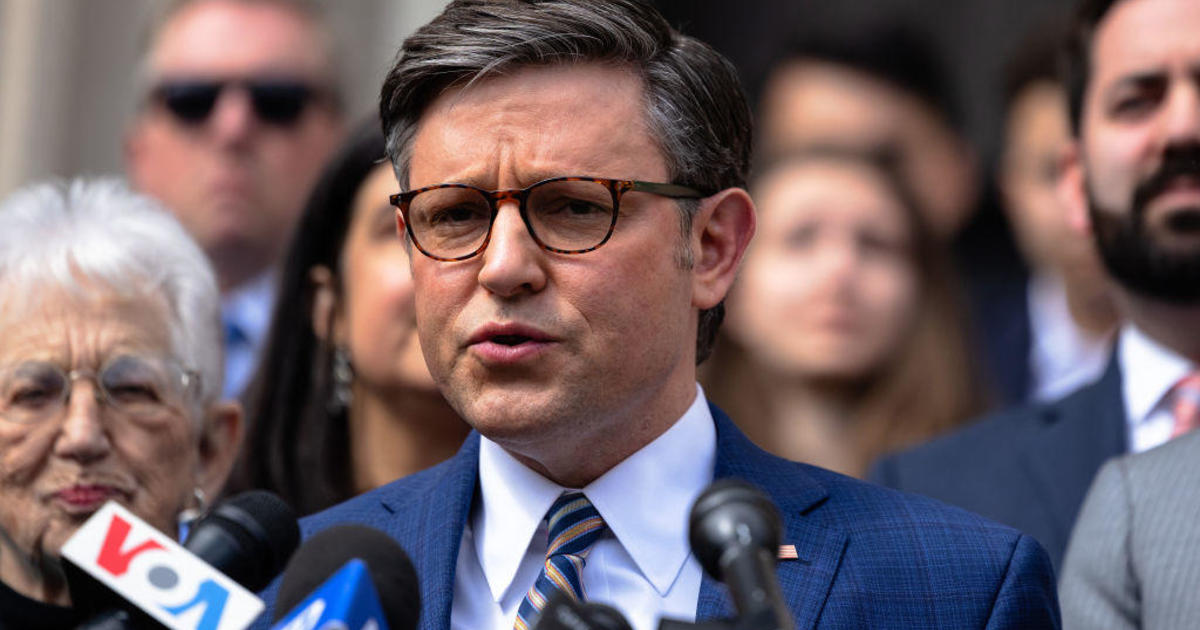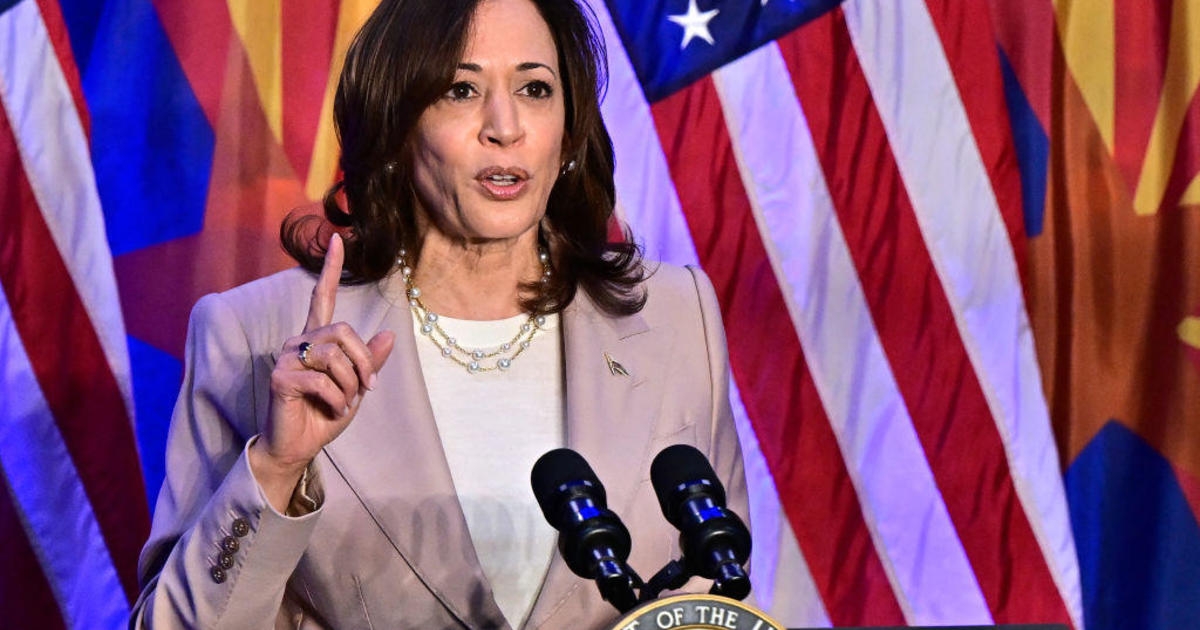Bipartisan push to grant protected status to Venezuelans fails in House
A last-ditch bipartisan effort to grant undocumented Venezuelans temporary legal status died in the House on Tuesday after it failed to garner enough votes from Republicans, who were wary of creating a new version of an immigration initiative President Trump and hardliners in the administration have sought to wind down.
The legislation — introduced by Florida Reps. Darren Soto, a Democrat, and Mario Díaz-Balart, a Republican — would allow Venezuelans living in the U.S. who have fled the country's repressive government and collapsing economy to qualify for a new Temporary Protected Status (TPS) program.
The bill's supporters pushed to suspend the rules of House and pass the bill before lawmakers left for their August recess. The maneuver, usually reserved for non-controversial bills, required the support of two-thirds of the House, meaning at least 55 Republicans would have needed to break ranks and vote for the measure. The move failed after only 37 Republican lawmakers joined the 230 Democrats voting in favor.
"House Republican leadership voted no and brought a lot of their votes with them," Soto told CBS News.
The Florida Democrat suggested that many of the House Republicans who have joined the president in harshly criticizing the leftist government of Venezuelan President Nicolás Maduro and its management of the crisis-stricken country are not matching their tough rhetoric with actions to help people who have fled the situation in Venezuela.
"It's definitely inconsistent and the voters will determine whether it's hypocritical," Soto said.
Soto called on House leadership to bring the measure to the floor for an up-or-down vote before Congress leaves town. He noted that regardless of whether another vote takes place this week or in September, the amount of Republican support in the House will be key to put pressure on the GOP-led Senate and ultimately, the White House.
Although the administration has touted its tough stance against Maduro's government — and used the country's economic collapse as a way to denounce the pitfalls of socialist governance — it has not supported efforts to grant temporary protected status to Venezuelans living in the U.S.
This week, the State Department's special representative to Venezuela, Elliott Abrams, told U.S. government-funded Voice of America that there were no current plans for a TPS designation for Venezuela. Citing court decisions blocking the administration from ending TPS programs for several countries in Latin America and Africa, the envoy suggested the administration is wary of making a new designation that it will not be able to end in the future.
For months, the Trump administration has staged a concerted campaign to support the bid of National Assembly President Juan Guaidó to oust Maduro. In addition to being the first government to recognize Guaidó as Venezuela's legitimate interim president in late January, the administration has issued sanctions against top officials in the Maduro government and the largest state-owned oil company in the country.
Despite these efforts — and the backing of dozens of governments, particularly in Latin America — Guaidó has failed to convince the Venezuelan military to join him in mounting a significant challenge to Maduro's government, which still enjoys some support in Venezuela, especially in poorer neighborhoods. In late April, Guaidó and his allies tried to organize an uprising, but failed to prompt any major defections among the country's sprawling military structure.
The prolonged political and economic crisis in Venezuela — once considered one of the wealthiest countries in Latin America — has driven more than 4 million people to flee to neighboring South American nations like Colombia and Peru. Some have also arrived in the U.S.
Most have fled because of the country's skyrocketing inflation and its widespread food and medicine shortages. Others have accused Maduro's government of persecuting them for engaging in political dissent. Earlier this month, the United Nations released a withering report in which it detailed thousands of extrajudicial killings as part of an effort by Maduro's administration aimed at "neutralizing, repressing and criminalizing political opponents and people critical of the government."
